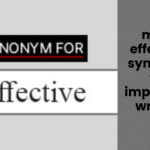In today’s digital world, personal data security has become more important than ever. Cybercriminals are constantly evolving their techniques to gain unauthorized access to sensitive information, leading to identity theft, financial loss, and privacy breaches. Protecting personal data requires vigilance, awareness, and proactive measures. This article explores effective strategies to safeguard personal information from hackers.
1. Use Strong and Unique Passwords
Passwords are the first line of defense against cyber threats. Weak or reused passwords make it easy for hackers to breach your accounts. Follow these best practices:
- Create strong passwords using a combination of upper and lowercase letters, numbers, and symbols.
- Avoid using easily guessed information such as birthdays or names.
- Use a unique password for each account to prevent a single breach from compromising multiple accounts.
- Consider using a reputable password manager to generate and store passwords securely.
2. Enable Two-Factor Authentication (2FA)
Two-Factor Authentication (2FA) adds an extra layer of security by requiring a second form of verification in addition to your password. This could be a one-time code sent via SMS, an authentication app, or biometric verification. Enabling 2FA significantly reduces the chances of hackers gaining access to your accounts even if they steal your password.
3. Keep Software and Devices Updated
Outdated software often has security vulnerabilities that hackers exploit. To stay protected:
- Regularly update your operating system, antivirus software, and applications.
- Enable automatic updates where possible to ensure you are always running the latest security patches.
- Be cautious about downloading software from unverified sources, as they may contain malware.
4. Beware of Phishing Attacks
Phishing attacks are a common method hackers use to trick individuals into revealing sensitive information. To protect yourself:
- Do not click on links or download attachments from unknown or suspicious emails.
- Verify the sender’s email address before responding to messages requesting personal or financial information.
- Use email security tools that flag phishing attempts and block malicious emails.
- Be cautious of phone calls or text messages impersonating banks, government agencies, or companies requesting sensitive information.
5. Secure Your Internet Connection
Hackers can exploit unsecured internet connections to intercept data. Follow these precautions:
- Use a Virtual Private Network (VPN) when accessing the internet on public Wi-Fi networks to encrypt your data.
- Avoid entering sensitive information on websites when connected to public networks.
- Secure your home Wi-Fi by using a strong password and enabling WPA3 or WPA2 encryption.
- Change your router’s default login credentials to prevent unauthorized access.
6. Monitor and Manage Your Online Presence
Your digital footprint can make you a target for hackers. To minimize risks:
- Limit the personal information you share on social media and other online platforms.
- Regularly review privacy settings on social media to control who can see your posts and profile details.
- Use different email addresses for different purposes (e.g., one for banking, one for shopping, and one for personal use) to reduce exposure.
7. Regularly Back Up Important Data
In case of a cyberattack, having backups can prevent data loss. Best practices include:
- Use an external hard drive or cloud storage service to back up important files.
- Schedule automatic backups for your data to ensure continuity.
- Store backups in multiple locations to protect against ransomware attacks.
8. Use Security Software and Firewalls
Security software helps detect and prevent cyber threats. Essential tools include:
- Antivirus and anti-malware programs to scan and remove malicious files.
- Firewalls to block unauthorized access to your network.
- Browser extensions that alert you to potentially dangerous websites.
9. Be Cautious with Smart Devices and IoT
Internet of Things (IoT) devices, such as smart home assistants and security cameras, can be entry points for hackers. Protect them by:
- Changing default passwords and using strong, unique credentials.
- Disabling features that you do not need, such as remote access.
- Keeping firmware updated to patch security vulnerabilities.
10. Stay Educated and Aware
Cybersecurity threats constantly evolve, making it essential to stay informed. Keep up with security news and trends by:
- Following trusted cybersecurity blogs and news sources.
- Attending online courses or workshops about online security.
- Educating family members, especially children and elderly relatives, about online threats and best practices.
Conclusion
Protecting personal data from hackers requires a proactive and multi-layered approach. By implementing strong passwords, enabling 2FA, keeping software updated, avoiding phishing scams, securing your internet connection, and staying informed, you can significantly reduce the risk of cyber threats. Vigilance and good cybersecurity habits are key to keeping your personal information safe in the digital age.







